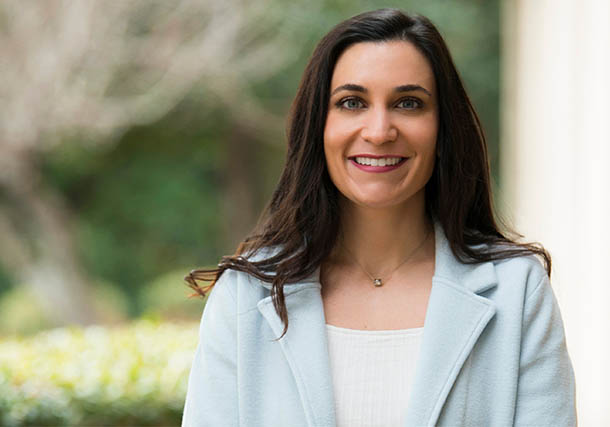
Registered Dietitian Services in Charlotte
If you’re looking to improve your overall health and navigate medical conditions like food allergies, a dietitian can be a valuable resource in creating management plans and practical tools. At Carolina Asthma and Allergy Center, we offer registered dietitian services, including nutrition assessments, education and resources tailored just for you.
Raquel Durban is a registered dietitian specializing in the dietary management of families with food allergies and we are fortunate to have her on our team. Raquel will help you navigate food allergy like a pro. Let your quality of life thrive through a 45-60 minute consultation that starts by answering your questions so you leave empowered. Follow up appointments are shaped to your needs and realistic timelines.
Contact us today to schedule a full assessment of your food habits and allergies.
Additional areas of nutrition support.
*High Cholesterol
*Weight management (underweight/overweight)
*Migraines
*Irritable Bowel Syndrome
How to Request an Appointment
If you suspect you have a food allergy or need assistance navigating your diet, the Carolina Asthma & Allergy Center offers comprehensive dietitian services, from assessment to treatment plans. Our team of board-certified dietitians and experienced healthcare professionals is here to assist you.
To schedule an appointment, simply give our office a call or fill out the online appointment request form on our website. Our friendly staff will collaborate with you to find a convenient date and time for your visit. In most cases, you will be asked to keep a food journal for at least a few days prior to the appointment.
During your appointment, a dietitian will conduct a full assessment, lasting about 45 minutes. They will get to know you, your food allergies, what your diet is like, what your schedule is, and learn about your overall eating habits. To determine the presence of an allergy, we may conduct various food allergy tests tailored to your specific needs.
Following the assessment and test results, our experienced team will develop a personalized treatment plan with recommendations and planning tools that you need to achieve your goals. Follow-up appointments and check-ins are common and are largely based on your needs. Typically, you will need to check in with your dietitian every 3 to 6 months. Contact us today to request an appointment and take the first step towards understanding and managing your food allergies and diet effectively.
What is a Dietitian?
A dietitian seeks to improve their patient’s diet, no matter what problem they’re facing. Their goal is to assist you in discovering what your body needs. If you’re facing food allergies, a dietitian can help you become aware of foods that you may be allergic to, but more importantly, she can help you navigate life with food allergies.
Dietitians offer many services, from allergy assessments to education. Their priority is to make lifestyle adjustments as smooth and easy to implement as possible, whether you’re seeking guidance for yourself or a child dealing with food allergies.

How Can a Dietitian Help with Your Food Allergies?
Choosing the right food can have a large impact on a person’s health, but knowing what to choose is not always easy. For people with food allergies, this can be even more difficult. A dietitian offers two main services:
- Nutrition assessments and counseling
- Nutritional education
Nutrition assessments and counseling begin with a comprehensive look at your overall diet. This includes all foods, beverages, and supplements you consume. Your dietitian will consider your food allergies, your food allergy education level, and what your body needs.
From there, they will create a treatment plan and recommend food or drink substitutions, supplements, vitamins, and more. They also aid in meal planning to ensure the complete optimization of a patient’s nutritional health.
Dietitians also want to help their patients understand food, dietetics, and their bodies through nutritional education. If a patient has food allergies, a dietitian will:
- Take the time to ensure that their patient understands food allergen labeling, preventing overwhelmed feelings when dealing with food allergies
- Equip you with all the information you need to make healthy decisions while food shopping
- Teach you menu items to avoid when dining out
- Help you prepare questions to ask to ensure your family’s safety
A dietitian can remove the stress that comes with shopping and dining out when dealing with allergies, and provide you with knowledge for dealing with all aspects of your allergy in the future.
What Else Can a Dietitian Do For You?
If you’re the caregiver of an infant worried about introducing allergens, or of a child recently diagnosed with food allergies, dietitians can offer you nutritional education, too. A dietitian can:
- Explain safe food choices, including guidance about peanuts and children, plus the vitamins and nutrients that parents need to incorporate into meals
- Provide guidance on the food allergen safety
- Recommend formulas that are safe for your new baby
Taking care of a child with food allergies can be stressful, but dietitians are here to lessen that burden. With food allergen education and a plan for food shopping, cooking, eating out, and ensuring you are prepared in case of emergency, this stress can be significantly reduced.
Summary
Dietitian FAQs
What is a registered dietitian?
A dietitian is a board-certified expert on food and nutrition. These individuals are highly educated in the fields of nutrition and dietetics, which is the science of food, nutrition, and its impact on the human body. Dietitians receive extensive training, schooling, and testing. They practice in many settings, including hospitals, outpatient clinics, research institutions, and more.
Do I have to be referred by a doctor to see a dietitian for food allergies?
No, you do not have to be referred by a doctor to see a dietitian. You just have to schedule an appointment.
What is the difference between a dietitian and a nutritionist?
Dietitians and nutritionists both focus on food, nutrition, and its effects on the body. However, dietitians often receive more education and are held to greater legal standards through government regulation. Being a dietitian requires licensure. This means that an individual must pass a rigorous exam and complete a supervised clinical program to serve as a dietitian.

Try our new Allergy-Friendly Restaurant Guide
A curated list of Charlotte area restaurants with allergy-friendly menus, making it easier for individuals with food allergies to enjoy dining experiences without worry
